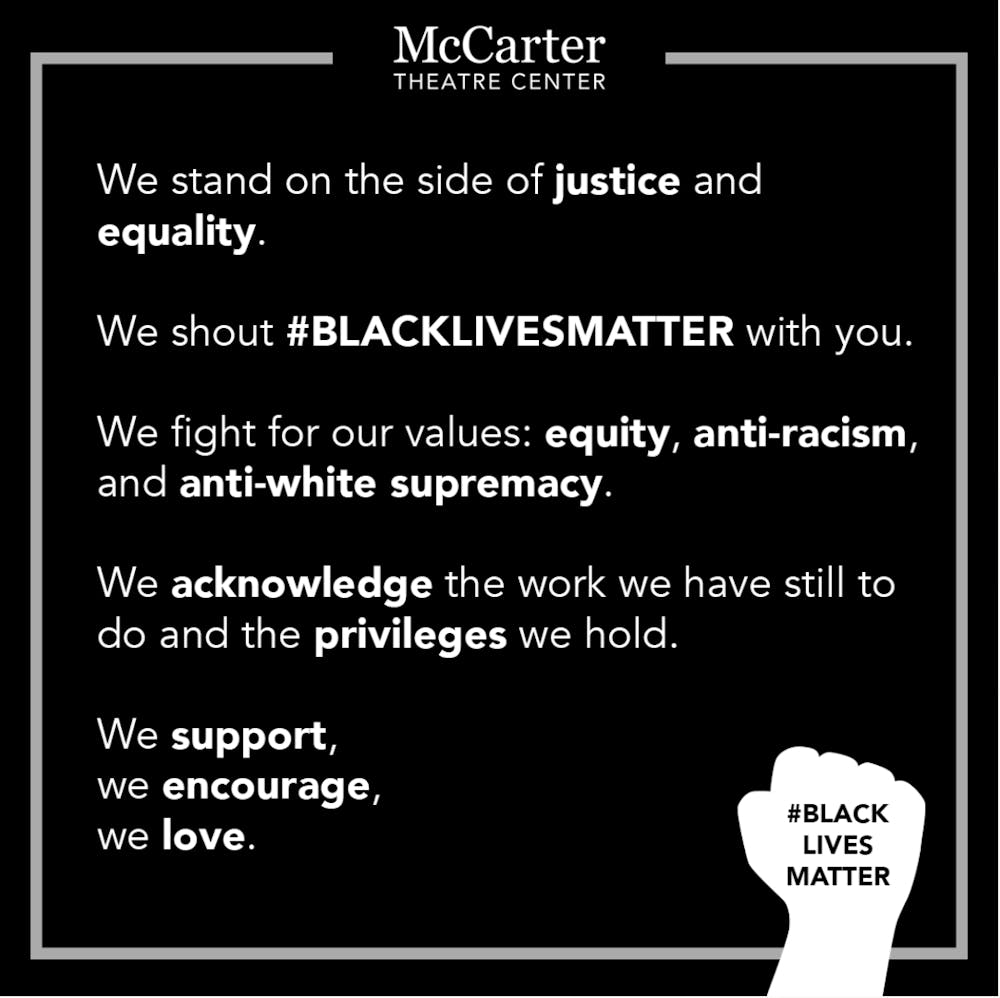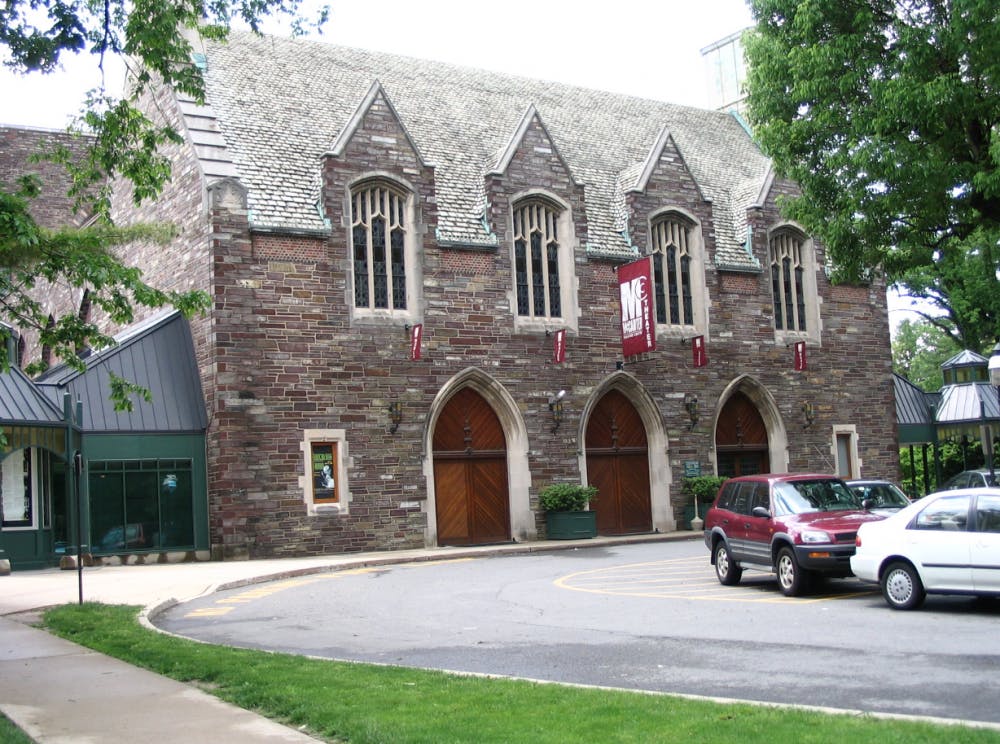McCarter Theatre has announced plans to prioritize diversity, equity, and inclusion, especially to combat systemic racism in American theater.
In a statement emailed to the theater’s patrons on Oct. 29, Artistic Director Sarah Rasmussen, who assumed the position over the summer, wrote, “Over the last few months, McCarter staff has formed a committee around equity, eschewing hierarchy and traditional leadership structure in an effort to lift consensus and teamwork.”
The statement partially responded to the “We See You, White American Theater” demands released over the summer, which detail BIPOC thespians’ “concerns, approaches, and needs.”
These demands, among others, include calls to acknowledge Indigenous lands and for BIPOC plays to represent “no less than 50 percent of mainstage programming,” with salaries and royalties “equitable to the institution’s highest tier.”
The emailed statement, which is also available on McCarter’s website, included a framing statement that outlines the theater’s plans, including mandatory anti-racism training and discussions.
“We’ve really prioritized this as a staff,” Rasmussen said to The Daily Princetonian, “in meeting weekly for at least 90 minutes to discuss both the We See You demands as a framework for the discussion, but also on all levels of our organization really having a space to bring those conversations to the table.”

McCarter Managing Director Michael Rosenberg emphasized the need to work towards the demands while reopening after the COVID-19 pandemic.

“[We’re] really thinking about not just taking this time to rethink the structures to really examine the barriers, but also, as we begin to rebuild, how we center some of these questions in our reopening plans, so that we’re not repeating the same mistakes that our sector has made in the past,” Rosenberg told the ‘Prince.’
“It’s about moving at a pace of authenticity for us,” Rasmussen noted, acknowledging the need to balance urgent action with deeper conversations.
Rosenberg added that calls for diversity, equity, and inclusion in response to racial injustice are not new.
“This is not the first time a police officer has murdered a Black man,” he recalled hearing at a summit held by BIPOC leaders in theater. “This is not the first time that we’re encountering these things, and we don’t want to respond to this moment in the same way we have in the past, and we don’t want your organization to respond as you have in the past.”

Rasmussen looks forward to several virtual programs, including a festival about Black playwright Adrienne Kennedy, which she feels will be accessible to a broader audience.
“Sharing work digitally is opening up avenues of access that are intersecting in really powerful ways with equity, diversity, inclusion, and accessibility, in that students who maybe would not have accessed our education before are able to now because of the online nature of it,” Rasmussen said.
She also looks forward to bringing new stories to the stage once the pandemic is over, particularly comedies featuring BIPOC writers, directors, and actors.
“We know we’re going to want to engage in these important conversations about justice,” Rasmussen noted, “but I think that we can hold those things together, that we can have joy and justice in the same conversation.”
“There’s a lot of power in who gets to tell the jokes,” she added.
John McEnany ’21, president of Princeton Triangle Club, the theater group for which McCarter was originally built in 1930, said that Triangle was also considering how to take anti-racist action.
“A big part of McCarter’s statement was that they can’t publish a list of action items before they’ve had the time to have these internal conversations,” McEnany said. “So we’re conducting similar conversations within our club involving our members and the Trustee Board and the wider campus arts community.”
McEnany expressed excitement for future conversations between McCarter and Triangle, while noting that he has no additional knowledge of McCarter’s plans or statement beyond reading it himself.








